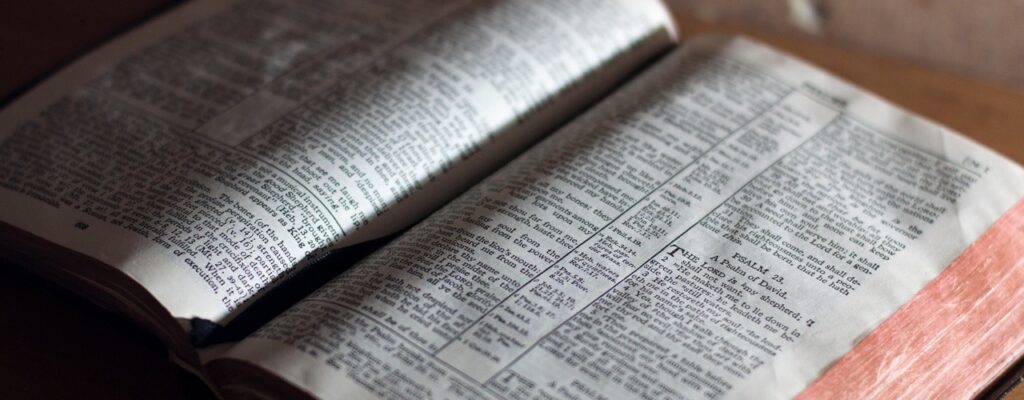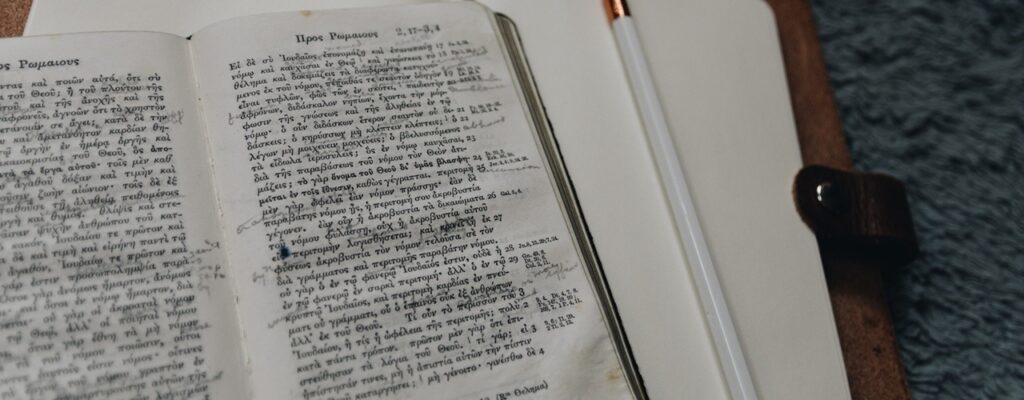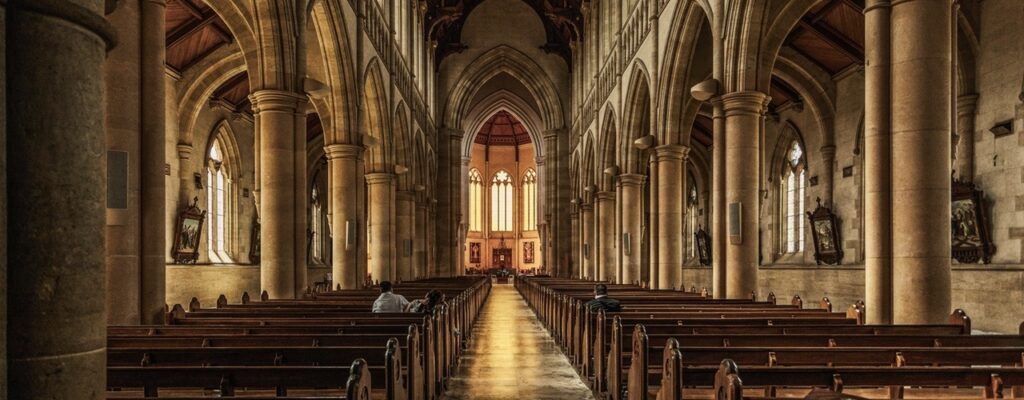
Understanding Sola Scriptura
Recently I presented some short teachings on the Five Sola’s at the congregation I attend. After I taught on the doctrine of Sola Scriptura my father mentioned to me that he had seen a recent article on this subject by a Messianic Jewish group named First Fruits of Zion (FFOZ). The author of this article was Jacob Fronczak, whom I learned has his M.Div. in Theological Studies from Liberty University, so I was excited to read an exposition from an educated Messianic on one of the theological foundations of our faith. As I read I began to realize that perhaps the author had not fully understood this central doctrine and it made me wonder how many others might have a skewed view of this doctrinal position
Sola Scriptura: A Misrepresentation
Fronczak begins his article by explaining that one of his seminary professors challenged him on some statements he had made. He explains that his professor’s challenge was based on the Protestant doctrine of Sola Scriptura. Surprisingly, Fronczak never once interacts with any of the Protestant reformers in his paper. Instead, he defines Sola Scriptura by utilizing a quote from Christian Smith’s book The Bible Made Impossible.1 Smith is a professor at Notre Dame, a former Protestant who converted to Catholicism. Smith has written many different works including one titled How to Go from Being a Good Evangelical to a Committed Catholic in Ninety-Five Difficult Steps.2 As a Catholic, it is no wonder Smith would reject the doctrine of Sola Scriptura, but Fronczak taking his definition of a Protestant doctrine from a Catholic seems a bit unfair. Smith is quoted as saying:
[Sola Scriptura is] exclusive authority, infallibility, perspicuity, self-sufficiency, internal consistency, self-evident meaning, and universal applicability.3
Although I would reject Smith’s entire premise in his work that is cited, some of the attributes that are assigned to Sola Scriptura in this quote are true, but need some clarification. Fronczak tries to give us this clarification:
To define sola scriptura without academic terminology might sound something like this: The Bible is the only authority in the believer’s life; it is never wrong about anything; it touches on every aspect of life; it needs no outside help to be correctly interpreted; it never disagrees with itself; it can be understood by anyone of average intelligence; and it applies to everyone in every situation.4
I can only assume that the theological stance that Smith presents has now been transported from the pages of a book that is widely seen as poor scholarship by evangelicals, into Fronczak’s understanding of this doctrine. What is more, Fronczak now takes this incorrect understanding of Sola Scriptura to argue his points throughout the rest of his article and to set up a straw man that is so easily knocked down.
Sola Scriptura: What It Really Is
It is correct that the theology of Sola Scriptura became a foundational principle of the Reformers to counter the Roman Catholic Church. During the 15th and 16th centuries, the Catholic Church and the Pope had significant political and religious power. The Bible was not available in the common vernacular but could only be read in its original languages and the Latin translation (known as the Vulgate). Thus, The Catholic Church had immense control over the people. False doctrines such as salvation through the Catholic Church and its monopoly on Sacraments were being taught as if Paul had spoken these commands himself. But the winds of change were at hand. Martin Luther challenged the authority of the Church and (among other things) took it upon himself to translate the Bible into German.
William Tyndale began a translation of the Bible into English. In the eyes of the Catholic Church, this threatened not only the authority structure of the Church and the Pope, but it also meant a significant financial hit. If the common person had the Word of God, they might realize that things such as giving money to the Church, buying indulgences, or even submitting to the authority of the Pope were not actually commanded in the words of Scripture. This threat led to the “burning of heretics” by the Catholic Church, and many believers were tortured and burned for being unwilling to recant in preaching against doctrines such as Transubstantiation (that the communion actually becomes the body of Jesus), paedo-baptism (the baptism of infants), and saying the Pope was not the direct mouthpiece of God (a doctrine that Sola Scriptura directly challenged). R.C. Sproul explains the formation of Sola Scriptura this way:
The Reformation principle of Sola Scriptura was given the status of the formal cause of the Reformation by Melanchthon and his Lutheran followers. The formal cause was distinguished from the material cause of Sola Fide (by faith alone). Though the chief theological issue of the Reformation was the question of the matter of justification, the controversy touched heavily on the underlying question of authority. As is usually the case in theological controversy, the issue of ultimate authority lurked in the background (though it was by no means hidden or obscure) of Luther’s struggle with Rome over justification. The question of the source of Luther’s doctrine and the normative authority by which it was to be judged was vital to his cause.5
Thus, the formation of Sola Scriptura was the doctrine that the Word of God had more authority than the Catholic Church, the Pope, and the Catholic Councils. This doctrine did not preach that there was no authority outside of the Bible (as we will see below).
Sola Scriptura is not the “only” authority within a believer’s life, but it is the “final” authority. This means that all other authority must be checked and must conform to the Word of God. Scripture sets up authority structures within homes, families, congregations, etc. While the modern-day evangelical does not have continued ties to the Catholic Church, it was still a large factor in the 15th to 17th centuries. Martin Luther challenged the Church, the Pope and the Church councils in 1519 in his debates with Johannes von Eck in Leipzig. Sproul interacts with Gordon Rupp’s account of Luther’s proclamation of this theology and says:
Scripture alone is the ultimate, divine authority in all matters pertaining to religion. Gordon Rupp gives the following account: “Luther affirmed that ‘among the articles of John Huss and the Hussites which were condemned, are many which are truly Christian and evangelical, and which the church universal cannot condemn!’ This was sensational! There was a moment of shocked silence, and then an uproar above which could be heard Duke George’s disgusted, ‘Gad, Sir, That’s the Plague!…’ Eck pressed his advantage home, and Luther, trapped, admitted that since their decrees are also of human law, Councils may err.”6
Thus began the formation of the doctrine of Sola Scriptura. This is not to say that Martin Luther came up with such a theology, but rather that this is when it began to be formulated as a doctrine which now is called Sola Scriptura. Contrary to those who claim that such a doctrine is not found within Scripture,7 we find Peter affirming this doctrine in Acts 5:27-29 against Jewish authority:
When they had brought them, they stood them before the Council. The high Priest questioned them, saying, “We gave you strict orders not to continue teaching in this name, and yet, you have filled Jerusalem with your teaching and intend to bring this man’s blood upon us.” But Peter and the apostles answered, “We must obey God rather than men.” (NASB)
Luther continues the formation of this theology in his speech at the Diet of Worms in 1521. He states:
Your Imperial Majesty and Your Lordship demand a simple answer. Here it is, plain and unvarnished. Unless I am convicted of error by the testimony of Scripture or (since I put no trust in the unsupported authority of Pope and Councils, since it is plain that they have often erred and often contradicted themselves) by manifest reasoning, I stand convicted by the Scriptures to which I have appealed, and my conscience is taken captive by God’s word, I cannot and will not recant anything, for to act against our conscience is neither safe for us, nor open to us.8
Luther was affirming the Scriptural doctrine that the final authority comes from God. But to say that Luther was advocating a teaching that we as believers are not to use any external literature to help guide and interpret the holy words of Scripture is clearly not true and even neglects his other works. In his letter to Duke Albert of Prussia he states:
You would be troubled not only for the sake of your soul, which would be damned thereby, but for the sake of the whole Christian Church, for if you allow any to teach against the long and unanimously held doctrine of the Church when you can prevent it, it may well be called an unbearable burden to conscience. I should rather have not only all ranters, but all powerful, wise emperors, kings, and princes testify against me than let one jot of the holy Christian Church hear or see anything against me. For we must not trifle with the articles of faith so long and unanimously held by Christendom, as we can with papal or imperial law or the human traditions of the fathers and the councils.9
Luther was not the only reformer that made such statements. In his “Institutes,” John Calvin writes:
Thus those ancient Councils of Nice, Constantinople, the first of Ephesus, Chalcedony, and the like, which were held for refuting errors, we willingly embrace, and reverence as sacred, in so far as relates to doctrines of faith, for they contain nothing but the pure and genuine interpretation of Scripture, which the holy Fathers with spiritual prudence adopted to crush the enemies of religion who had then arisen. In some later councils, also, we see displayed a true zeal for religion, and moreover, unequivocal marks of genius, learning, and prudence. But as matters usually become worse and worse, it is easy to see in more modern councils how much the Church gradually degenerated from the purity of that golden age.10
Thus, many such as Fronczak, show a misunderstanding of what the doctrine of Sola Scriptura actually is. Building on such misrepresentation, Fronczak makes several untrue statements:
If the Bible is the only authority and the only necessary tool for faith and practice, it must state in the Bible that this belief is correct.11
Fronczak uses this false pretense to attack those who hold to Sola Scriptura by pulling doctrines such as the trinity and the formation of the New Testament canon into the conversation. While Fronczak does not explain his personal views of the trinity doctrine, he argues that since the trinity doctrine is not specifically laid out in the Bible, it would then need to be rejected by Protestants.12 This goes far beyond the debate of Sola Scriptura and shows a lack of understanding about another foundational doctrine that is in fact laid out within the Scriptures (See Rom. 8 and John 14), but this is a topic for another time. For now, we can simply say that this view of Sola Scripture is clearly wrong. For instance, note what the Westminster Confession of Faith has to say about this doctrine:
The whole counsel of God, concerning all things necessary for his own glory, man’s salvation, faith, and life, is either expressly set down in scripture, or by good and necessary consequence may be deduced from scripture: unto which nothing at any time is to be added, whether by new revelations of the Spirit, or traditions of men.13
Thus, the plurality of God is clearly a doctrine that “by good and necessary consequence may be deduced from Scripture.” Sola Scriptura also does not claim that “it touches on every aspect of life” as Fronczak wrongly asserts. In a short article by John MacArthur, he states:
Sola Scriptura simply means that all truth necessary for our salvation and spiritual life is taught either explicitly or implicitly in Scripture. It is not a claim that all truth of every kind is found in Scripture. The most ardent defender of Sola Scriptura will concede, for example, that Scripture has little or nothing to say about DNA structures, microbiology, the rules of Chinese grammar, or rocket science. This or that “scientific truth,” for example, may or may not be actually true, whether or not it can be supported by Scripture—but Scripture is a “more sure Word,” standing above all other truth in its authority and certainty.14
I could continue to show how reformed theologians such as Martin Chemnitz, Charles Hodge, and others all affirm that Sola Scriptura does not teach against using outside sources when seeking to interpret and understand the Bible. Nor does this doctrine hold that the Scriptures are the only authority in one’s life. Surely God has ordained various levels of authority in a believer’s life: local government, parents, spouse, Church authorities, etc. The point made by Sola Scriptura is that when authorities require something of an individual which goes contrary to the Scriptures, then the Scriptures must be obeyed as over against other authorities. With this in mind Fronczak’s claim that “Protestants have painted themselves into a corner here, as they reject any post-biblical tradition as authoritative,”15 falls to the ground as having misunderstood one of the basic tenants of Sola Scriptura.
Conclusion
Those who take a foundational truth of our faith and try to do away with them show a lack of understanding of the very basic theology upon which we as believers stand. In so doing they have misrepresented the doctrine and theology of the Protestant reformers. But even more egregious is they have questioned the authority of the Holy Word of God.
We as believers have been given an unbelievable gift. One of my friends recently pondered the fact that we as humans have the ability to hold the Word of the Almighty God in our hands. I believe it was Justin Peters who said, “If you want to hear the Lord speak to you, read your Bible. If you want to hear the Lord speak audibly to you, read your Bible out loud.” Believers have died to preserve this book and yet there are some who want to downplay the significance of what is contained in the Scriptures. Do not be fooled by such false claims. We can trust our Bibles, and the Scriptures are the final authority in the life of a believer.
- Christian Smith, The Bible Made Impossible (Brazos Press, 2012).
- Christian Smith, How to Go from Being a Good Evangelical to a Committed Catholic in Ninety-Five Difficult Steps (Wipf & Stock, 2011).
- Jacob Fronczak, “The Five Solas: Sola Sciptura”, MJ 111 (2012), p. 47. [Here after Fronczak Sola Scriptura]
- ibid
- James Montgomery Boice, The Foundation of Biblical Authority, (Zondervan Pub., 1979) p. 103.
- James Montgomery Boice, The Foundation of Biblical Authority, (Zondervan Pub. 1979) p. 104, quoting Gordon Rupp Luther’s Progress to the Diet of Worms, p. 69
- Fronczak, Sola Scriptura, p. 49
- Henry Bettenson and Chris Maunder ed., Document of the Christian Church, (Oxford, 1950) p. 285
- Preserved Smith ed., The Life and Letters of Martin Luther, (Houghton Mifflin, 1911) p. 291-292
- John Calvin, Institutes, number 4.9.8, sighted from Accordance Bible Software.
- Fronczak Sola Scriptura, p. 48, 49
- Ibid.
- The Westminster Confession of faith, Article 1.6
- Ligonier Ministries, “What Does Sola Scriptura Mean?” (http://www.ligonier.org/blog/what-does-sola-scriptura-mean/) It is also interesting that Fonczak quotes from the council of Trent, a Catholic Council that convened over a period of 18 years from 1545 to 1563, yet is completely silent when it comes to the Protestant council of the Westminster Assembly, that largely spoke against the doctrines established at the council of Trent.
- Fronczak Sola Scriptura, p. 49




